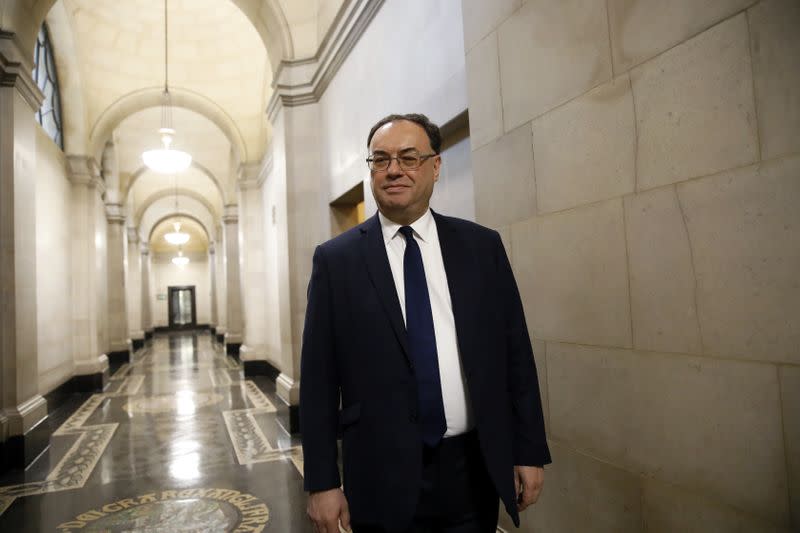BoE's Bailey says Britain and EU should reach trade deal
LONDON (Reuters) - Bank of England Governor Andrew Bailey said he believed Britain and the European Union should be able to reach a trade deal, and that he did not expect the new wave of coronavirus cases to be as damaging as the first.
"I do think it is in the interests of both sides - let's be blunt - to get an agreement," he said in an interview with the Yorkshire Post newspaper published on Thursday.
"I'm surprised that the EU wants to restrict where their citizens can do business. We will certainly keep our markets open to the world," he added.
Britain's Brexit supremo Michael Gove told parliament on Wednesday that he saw a two in three chance that the two sides would reach a deal before post-Brexit transition arrangements expire at the end of this year.
Bailey reiterated that while he would like to see Britain and the EU retain equivalent standards in financial services regulation, it would be wrong for Britain to continue to follow EU rules it had no control over.
Bailey also said that the rising number of coronavirus cases in Britain was likely to hurt the economy, though less badly as the initial surge earlier this year, which led to a 20% fall in output in the three months to June.
"There will be a degree of natural caution," he said, adding that the BoE remained ready to take more action if needed.
"The policy tools will be used to the fullest extent possible to support the businesses and people of this country," he said.
Some sectors of the economy, such as hospitality, were likely to come under greater pressure, as new government job support were less suited to businesses where there was not an immediate prospect of demand returning.
"We've got to face up to the question of how long the economy can go on for before some degree of structural change has to happen. It's a hard one," he said.
(Reporting by David Milliken; Editing by Alistair Smout/Guy Faulconbridge)

 Yahoo Finance
Yahoo Finance 

